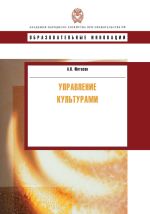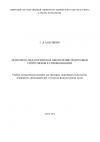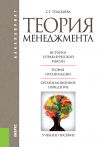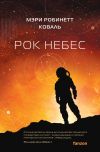Текст книги "Управление культурами"

Автор книги: Андрей Фетисов
Жанр: Управление и подбор персонала, Бизнес-Книги
сообщить о неприемлемом содержимом
Текущая страница: 7 (всего у книги 10 страниц) [доступный отрывок для чтения: 3 страниц]
Awareness of the enhancing and denigrating consequences of distant proximities has the potential of becoming major sources of tension within and among collectivities. People whose life circumstances limit their experience of the distant to global television and prevent them from direct and recurring electronic and physical interactions with remote places may well evolve resentments of those whose movements are less restricted. Not class warfare but spatial-scalar warfare, in other words, may be in the offing. As one observer puts it, rather than homogenizing the human condition, the technological annulment of temporal/spatial distances tends to polarize it. It emancipates certain humans from territorial constraints and renders certain community-generating meanings extraterritorial – while denuding the territory, to which other people go on being confined, of its meaning and its identity-endowing capacity. For some people it augurs an unprecedented freedom from physical obstacles and unheard-of ability to move and act from a distance. For others, it portends the impossibility of appropriating and domesticating the locality from which they have little chance of cutting themselves free in order to move elsewhere.
In short, it is highly unlikely that the contradictions of the emergent epoch have escaped the attention of individuals. With the fragmenting forces of localization and the integrating dynamics of globalization so interwoven as to be products of each other, people have become increasingly aware of how fragmegrative dynamics have intensified old identities and fostered new ones. However they may articulate their understanding, there are good reasons to presume that people everywhere have come to expect, to take for granted, that the advance of globalization poses threats to long-standing local and national ties, that some groups will contest, even violently fight, the intrusion of global norms even as others will seek to obtain goods, larger market shares, or generalized support beyond their communities. The forces of fragmentation are rooted in the psychic comfort individuals derive from the familiar, close-at-hand values and practices of their neighborhoods, just as the forces of integration stem from their aspirations to share in the distant products of the global economy, to benefit from the efficiencies of regional unity, to avoid the dangers of environmental degradation, to contribute to coherent communities through policies of inclusion that expand their democratic institutions, and to yield to the implications of the meaning of the pictures taken in outer space that depict the earth as a solitary entity in a huge universe. Stated more succinctly, «There is a constant struggle between the collectivist and individualist elements within each human».
Overview
The dynamics of fragmegration and globalization, not to mention those of complexity and the methodologies employed to study them, are so pervaded with values that no analyst can be neutral with respect to them. The most that can be achieved is explicitness on the part of each analyst about the underlying values, experiences, and analytic commitments that guide and inform his or her work. I have tried to be faithful to the virtues of explicitness in the postscript to this book (see chapter 19).
The next chapter wrestles with key conceptual challenges that have to be confronted in order to probe the underpinnings of distant proximities. Chapter 3 focuses on some of the prime sources and consequences that drive fragmegration, an analysis that facilitates, in the remaining chapters of part I, a recasting of global life in terms of how diverse individuals experience distant proximities. The chapters of part II set forth additional conceptual equipment that may be useful to comprehend a world that has moved beyond globalization to continuing clashes between integrative and fragmenting forces. The chapters of part III seek to delineate how individuals at the micro level and collectivities at the macro level interact to configure and sustain the structures, processes, and issues that constitute today’s global agenda.
Throughout, an effort is made to indicate that while globalization is a central dynamic of our time, it nonetheless needs to be cast in a more encompassing, fragmegrative context if we are to deepen our understanding of how and why events unfold as they do. This effort rests on the premise that the empowerment of individuals in the emergent epoch – their enlarged capacities derived from new technologies; from their greater educational and travel opportunities; from their experience in having their collective actions topple or redirect governments, corporations, and other macro institutions; and from the advent of what has come to be called the «me» generation – contributes substantially to where the world is headed. This «triumph of individualism» is not always welcome, but its presence cannot be ignored in any effort to grasp the course of events.
Znaniecki F.
Cultural Reality
Chicago: University of Chicago, 1919
Chapter 1. Culturalism. The thesis of culturalism
Globalization is bringing peoples closer apart and places further together.
John Rennie Short
We shall use the term «culturalism» for the view of the world which should be constructed on the ground of the implicit or explicit presuppositions involved in reflection about cultural phenomena. Let us try to formulate first of all the most general of these presuppositions.
The progress of knowledge about culture demonstrates more and more concretely the historical relativity of all human values, including science itself. The image of the world which we construct is a historical value, relative like all others, and a different one will take its place in the future, even as it has itself taken the place of another image. Yesterday man conceived himself as part of an invisible, spiritual society, and regarded the visible material nature as an instrument created exclusively for his purposes; today he conceives himself as part and product of the visible material nature; tomorrow he will reject this conception as nanve and uncritical and find a new one, and so on. More than this. The methods with which he operates in studying and controlling the natural world; the principles which he applies, consciously or not, to his material environment; the logic which he uses in isolating and determining things and their relations; his very ways of perceiving the sensual reality, have changed more or less slowly, but perceptibly, even during the short historically known period of cultural evolution, and will change still more. History of culture is the only field in which we can follow directly and empirically at least a part of the evolution of the human «mind», and the only theory of mind which can be directly based upon empirical data is therefore a theory which takes mind as a product of culture. The theories of the old type of idealism are in discordance with experience, for they conceive mind, individual consciousness or superindividual reason, as absolute and changeless, whereas history shows it relative and changing. The theories of modern naturalism are not empirical, for the pre-cultural evolution of consciousness, whatever it was, has left no historical traces by which it can be directly reconstructed; the entire genetic conception of biological evolutionism is based on indirect inference and cannot be accepted even as a metaphysical doctrine, since it leads, as we have seen, to a self-contradiction.
Hundreds of thousands of years of cultural life have agglomerated such an enormous mass of habits and traditions that man is absolutely unable to perceive or to conceive any other nature than the one he sees through the prisms of culture, absolutely unable to act upon nature otherwise than in culturally determined ways. Our whole world, without any exceptions, is permeated with culture, and we can no more imagine what was the world of our pre-human ancestors than we can imagine the fourth dimension. There is no way out of culture. The study of the animal or of the child? But we must either interpret their consciousness by analogy with our consciousness, identifying the world as given to them with the world as given to us, or else we study their behavior as a part of the processes going on in our world and their behavior is seen by us as is everything else, through the prisms of culture. Our own childhood remembrances? But we found ourselves from the very beginning in a cultural world, and our cultural training began much earlier than our memory can reach; moreover, every later addition to our cultural stock has modified the form and content of our first memories. The study of the organism? But the organism, our own or that of any other being, as seen by us while studying it, is also a part of our culturally conditioned world. Its sensual image, all the meanings of this image, all the connections that we find between it and the rest of material reality, all the connections between the elements of this image, even the manual acts by which we prepare it for anatomical or physiological studies, even the acts by which we turn our attention to it, are products of culture to a degree which we are unable to determine – and how much more the theory which we construct on the basis of all this!
Naturalism will here interpose the argument that the practical efficiency of our adaptation to nature guarantees some kind of accordance between nature in itself and our images of it. We cannot avail ourselves of the opposite argument of idealism, as that presupposes the existence of absolute values, whereas we reject absolute values, both in the explicit claims of idealism and in the implicit assumptions of naturalism. But the argument from practical success does not prove anything in favor of naturalism or against culturalism, for it justifies as well any one of the images of the world which have been advocated and discarded during the process of cultural evolution, and it may be used in the future to justify quite different images from the one which modern naturalism defends. Our success depends on our claims and on the part or side of reality to which we apply those claims: our claims are onesided and limited, and the range within which we attempt to realize them does not include the entire empirical world, but only relatively few phenomena taken from a certain standpoint. Therefore to the savage his magical technique seems as successful as scientific technique seems to the modern engineer.
The argument becomes more serious when it appeals not to the mere fact of the relative success of a certain technique at a certain period, which must be always appreciated from the viewpoint of those who use the technique, but to the absolute growth of the range of control which we exercise over nature. Our savage ancestors may have been as successful in attaining things which they wanted as we are in attaining things which we want, and the proportion of their unsatisfied claims to those which they could satisfy may not have been any larger than ours, but we want and attain incomparably more than they did. This is clear; but in order to conclude from this that our image of the world has grown more objectively true than theirs we should have to assume that man and nature as given to man have remained essentially unchanged: the growing range of our control of nature would then have no other explanation than a more perfect adaptation of our image of the world to the world itself. Now, such an assumption would be manifestly false. Our knowledge has indeed become much wider and more methodical, but its development is only a fragment of the general development of man and of the world, and it would need a special and long investigation to show what part of our present wider range of control is due to the higher stage of our knowledge and what part to other factors. Besides, the relation between knowledge and practice may be quite different from that which naturalism assumes. Whatever it may be, it is clear that if we want more and attain more than our ancestors did, it is not merely because our knowledge is more perfect, but because our whole personalities are richer, better organized and more creative, and because the world contains for us more and means to us more; in a word, because our selves and our world are products of a longer cultural development.
However, if an investigation of the history of culture shows the relativity of any naturalistic view of the world, it does not lead to idealism in any sense. We have above referred to mind, and to our ways of perceiving and conceiving the world, using the traditional terminology, but we do not mean to imply that, the world of things-in-themselves remaining unchanged, only the mind has evolved in its ways of perceiving and conceiving them, or that the world is not a world of real nature at all, but only immanent data of individual or super-individual consciousness. The point is not that the world as men see and conceive it is not the world as it really is, but that the world as men see and conceive it and as it really is changes during cultural evolution, and that therefore our present nature, being objectively such as we see it, is quite different from pre-human nature, for it is, in a measure which it is impossible to determine a priori, a product of cultural evolution.
We may agree that human culture has not brought it out of nothingness, that it found a pre-human world ready as material for further development, but it has modified it so deeply, not only by technical invention, but by sensual and intellectual, social and economic, aesthetic, religious, and moral activities, and in modifying it has evolved so many and various types of these activities, so many new ways for future modifications, that whatever this pre-human world may have been, none of the generalizations of our knowledge based on our now existing world can be true of that distant past. Our science of nature is valid when applied to our present natural reality, but not valid if extended to nature as it was before the appearance of humanity. Our astronomical, physical, geological, biological theories hold true of nature only for the relatively short historical period during which the character of reality has not fundamentally changed. When projected into a more distant past, our scientific conceptions lead to more or less fantastic images of the world as it might have been if it had been and remained continually as it is now, except for those changes which, according to the present character of natural reality, should have occurred between the imagined moment of the past and the present moment. An analogous limitation makes all scientific prophecies about future states of the world appear the more fantastic, the more distant the imagined state. In other words, our science of nature is in its proper field when it searches for abstract definitions and for the laws of the present reality, and when it uses them to reconstruct and to control this reality, but it transcends its domain and is mere imagination whenever it tries to reconstruct the unique concrete evolution during which the world and man have become what they are or to foresee the concrete unique course of the future evolution of the world or of man. This means, for example, that all attempts to understand the pre-human evolution of the solar system, of earth, of the organic world, of consciousness, etc., are irremediably devoid of objective validity if pursued, as they are now, exclusively by naturalistic methods and based upon the naturalistic view, for they can never, not even hypothetically, reconstruct the past as it really was, but only as it might have been if certain impossible conditions had been realized. The only merit of the theory of natural evolution, aside from its particular applications to specific present happenings, is that in its extension over the entire past of nature it satisfies the philosophical aspirations of the modern scientist by permitting him to construct a monistic system of the universe. But this merit is a doubtful one, for naturalistic monism prevents the application of a more adequate standpoint to the history of the world.
If we want, indeed, to understand the past of the world as it really was, assuming that we may take for granted at this point that there is a possibility of developing proper methods of reconstructing past phenomena, we shall evidently first of all study the nearest and most accessible past, that is, the historical period of evolution. By careful analysis of the history of culture we can determine the gradual additions brought during the historical existence of humanity to its own consciousness and to the world as given to it at various moments. We cannot tell in advance how far into the past we shall be able to go, nor how much will be left of our world when we have subtracted all the cultural additions the origin of which we can determine directly from historical traces. We can only hope that this investigation will bring to our hand principles which will permit us to extend hypothetically our theories beyond the historical past, into the pre-historical period; we can obtain materials for this hypothetical indirect determination of the past from ethnographical studies of still existing lower stages of culture. Then, and only then, by a still more hypothetical extension we can try to reach the still more distant period of pre-human evolution, and at this point only we may be able to use the data of natural sciences as raw material. Our method should then be a special analysis subtracting from these data everything which has been proved to be an addition posterior to that moment of the past that we are trying to reconstruct.
How this investigation can be done in detail is a complex problem of methodology. For a general view of the world the fundamental points are that the concrete empirical world is a world in evolution in which nothing absolute or permanent can be found, and that as a world in evolution it is first of all a world of culture, not of nature, a historical, not a physical reality. Idealism and naturalism both deal, not with the concrete empirical world, but with abstractly isolated aspects of it. Idealism continues to treat evolution as a merely phenomenal matter and tries still to find some immovable ground above the moving stream without seeing that to have any significance at all in the development of knowledge it must remain in the stream and move with it: that is, it must cease to be idealism. Naturalism wants indeed to reconstruct evolution, but it takes an abstract cross-section of the concrete becoming and attempts to understand the becoming by studying this cross-section. If therefore modern thought intends to avoid the emptiness of idealism and the self-contradictions of naturalism, it must accept the culturalistic thesis. It must maintain against idealism the universal historical relativity of all forms of reason and standards of valuation as being within, not above, the evolving empirical world. It must maintain against naturalism that man as he is now is not a product of the evolution of nature, but that, on the contrary, nature as it is now is, in a large measure at least, the product of human culture, and if there is anything in it which preceded man, the way to find this leads through historical and social sciences, not through biology, geology, astronomy, or physics.
But it is much easier to formulate the culturalistic thesis and to show in the abstract the necessity of its acceptance than to develop its consequences in concrete application to the empirical world. The better we understand what a radical revolution of all our intellectual dogmas the realization of such a thesis would demand, the greater appear the difficulties. For, on the one hand, naturalism seems to be simply a systematic and logical development of a view of reality which is implied not only by our common-sense reflection, but by our practical activity, by our language, by the very logic which our knowledge has to use. On the other hand, idealism with its search for the absolute, with its tendency to rise above the relativity of historical becoming, seems to express a necessary and fundamental condition of our thought which cannot conceive itself as being a fragment of a dynamic development, cannot immerge itself back into the stream from which it has just emerged by the very act of constructing or accepting a truth, a good, a beauty, or any other value.
In order to overcome these apparent difficulties, we must go to the very bottom of the problem of reality and thought and try to determine their general empirical character as independently as possible of the implicit or explicit assumptions which common sense, practice, language, science, and philosophical tradition tend to impose upon our conceptions of the world. This does not mean that we should attempt to build a philosophical theory by intentionally ignoring all those assumptions and starting ab ovo as if nobody had philosophized before. On the contrary, the history of philosophy shows that such attempts at absolutely new beginnings involve the danger of accepting uncritically many assumptions which a less pretentious method would avoid. There are no absolutely new beginnings, no fundamental original truths which a philosopher can find at the outset of his reflection and which would make him independent at once. The only way to avoid the undesirable influence of past or present uncritical prepossessions concerning the problem which we are studying is to find them out by critical research, to understand their proper significance, to keep them continually in mind, and to use them in their proper connection. For there is no conception in the history of knowledge which does not have some validity, no methodical assumption ever used which does not have some sphere of application; the only question is, Within what limits is the conception valid? For what purposes can the method be utilized?
Правообладателям!
Данное произведение размещено по согласованию с ООО "ЛитРес" (20% исходного текста). Если размещение книги нарушает чьи-либо права, то сообщите об этом.Читателям!
Оплатили, но не знаете что делать дальше?




































